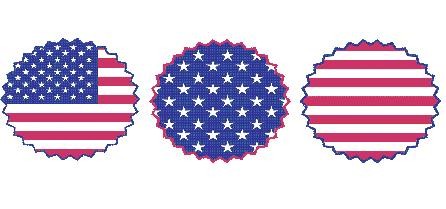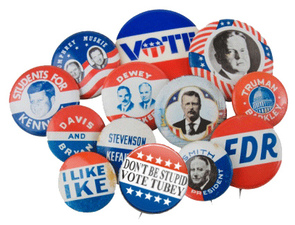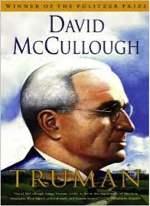 Party Conventions During the month of July, Americans will witness the party conventions. These gatherings are very important. At the conventions, the parties (1) officially nominate their candidates for president and vice president and (2) ratify the party platforms, which are statements about what the party believes. Today, most Americans know party conventions as multi-media extravaganzas! They are broadcast on television and streamed live over the Internet. There are bands, speeches, and lots of balloons. Here 2016 convention dates and locations: Republican National Convention July 18-21 in Cleveland, Ohio Democratic National Convention July 25-28 in Philadelphia, Pennsylvania Each night of the convention has a theme. And each night has a lineup of speakers. The most important speaker of the night typically goes last. On the last night of each party convention, the nominee will give an acceptance speech. This week, we have a free printable worksheet for you to help engage kids in the party conventions. Have your student(s): (1) Watch one night of the convention speeches and proceedings. You can watch live or view a recording at a later date. (2) Fill out the printable.  For an entire, in-depth lesson on political conventions, check out our Presidential Elections unit study, available now at Silverdale Press. For more tips and free resources like this, subscribe to our newsletter.
0 Comments
 Newsletter June 25, 2016 Tip #2 for Engaging Your Family in the Presidential Election: Host a Weekly Current Events Roundtable Now that your family is reading up on current events, what can you do with your newfound knowledge? Host a weekly current events roundtable! Current events discussions should be a part of every student’s education in social studies, and the presidential election provides an ideal opportunity for doing just that. Your discussions do not have to be focused just on what the candidates are saying or doing, but they certainly should be a part of it. Feel free to incorporate other newsworthy events. Chances are that if an event is in the news, the candidates will be addressing it too. How do you set up a current events roundtable? It’s easy. 1. Set a date Planning ahead is key for current events roundtables to become regular events. We recommend that they happen at least once a week. Determine which days and times work best, and mark them on your calendars ahead of time. 2. Invite family and friends Decide on the people you are going to invite. You could just include family members, or you could also invite friends. Roundtables would also be a great activity for co-ops. If you would like a harmonious discussion, invite likeminded people, such as those who are supporting the same candidate you are. This might be a good idea because emotions can run high in presidential elections. 3. Find and bring articles Have each student clip one article from the newspaper. Make sure the articles are those they found interesting or important. Students should read the articles carefully before bringing them to the roundtable. 4. Set procedures and rules Each student should be given a certain amount of time—two minutes would be fine—to summarize the article before the group. They should hit all of the high points, including relevant facts and statistics. Then allot a certain amount of time—maybe ten minutes—for discussing the article with the larger group. At the outset, parents or leaders should state what kind of conduct is expected. Everybody should be polite. Everybody should be respectful. Nobody should talk when another person is talking. Everybody should have a turn. Make the rules clear at the first event. 5. Have fun Events are always more fun when food is involved. Make your event a potluck, where everybody brings a dish to share. You can get really creative and tie your food to a current event. For example, if you were hosting a current events roundtable this week, you might want to talk about the U.K.’s vote on whether to exit the European Union. You could bring fish and chips, pudding, tea and scones, or other British fare. You could also host a traditional brown bag, where everybody brings his or her own lunch. Bring props or visual aids to go with your articles. For example, if your article is about campaign fundraising, you can make a graph showing how much money each of the candidates has raised. Or if your article is about the U.K.’s potential European Union exit, draw the Union Jack, the national flag of the U.K. Educational Benefits of Roundtables
Examples of Current Events from This Week
Weekly Challenge: Organize a Current Events Roundtable 1. Set a date 2. Invite people 3. Find and bring articles 4. Write out procedures and rules 5. Plan fun food, visuals, or activities Weekly Question for Debate Why did Donald Trump fire his campaign manager? Coming Up: Republican National Convention, July 18-21 in Cleveland, Ohio Democratic National Convention, July 25-28 in Philadelphia, Pennsylvania Want to engage your homeschool student in the presidential election? For more information and fun activity suggestions, try our Presidential Election Unit Study. Available now at Silverdale Press!  Do the Presidential Candidates Get a Summer Break? The 2016 primary contests are now officially over. The last one, the Washington, D.C. Democratic primary, was held on Tuesday. From now until the parties’ July conventions, when the delegates will officially vote to confirm the nominees, the presidential campaign season will be in an in-between, summer break phrase. The candidates, however, do not get much of a breathing spell. What do the campaigns do during this interlude? Here are three of the most important things. 1. Repair damage Primary contests are bruising. All of the negativity does damage to the candidates’ images. The candidates will spend their summer breaks trying to repair the damage. 2. Unify the party The candidates must also try to win over the members of the party who did not vote for them. The primary season features contests where party members run against one another. Not all primary voters supported the winners. The primaries can reveal splits within the party. Therefore, the summer interlude is a chance for the campaigns to get their party members to come together and support the winners. 3. Pick a running mate The nominees must also choose a vice presidential running mate, also called the “veep” for short. The candidates will choose somebody who can help them win in November. Behind the scenes, the campaigns are vetting—or carefully examining—potential vice presidential candidates. Next week, we’ll be back with more tips for engaging your homeschool family in the presidential election Suggested Activities:
Coming Up: Republican National Convention, July 18-21 in Cleveland, Ohio Democratic National Convention, July 25-28 in Philadelphia, Pennsylvania Learn More! Want to learn more about the primary season, vice presidential running mates, delegates, superdelegates, and other fun facts? Try our Presidential Elections unit study. Want more tips like these? Sign up for our newsletter. 2016 Election Fun Fact: Did you know that the 2016 presidential primary contests officially ended yesterday with the District of Columbia Democratic primary? Republican primaries ended last week. Don't know the results from your state? You can click on the link below to find out.
http://www.politico.com/2016-election/results/map/president  Why not add some presidential books to your summer reading list? Try Truman by David McCullough. McCullough is one of the nation’s most widely read historians; he won the Pulitzer Prize for this book. Drawing on archival materials and extensive interviews, this book traces Harry Truman’s life from his humble roots on the Missouri frontier to the White House. Also, learn more about Truman’s legendary whistle stop campaign of 1948! But this book is not for the faint of heart. While the book is enjoyable, it clocks in at about 1,200 pages. |
Silverdale PressCheck out our About Page to learn more about us! Categories |

 RSS Feed
RSS Feed